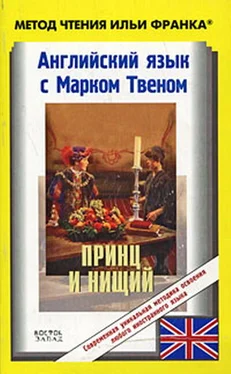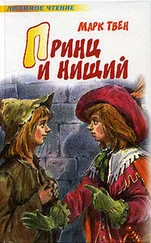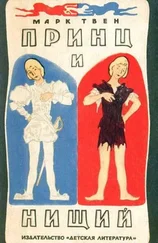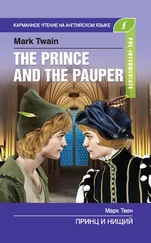'Bien Darkmans then,
Bouse Mort and Ken,
The bien Coves bings awast,
On Chates to trine by Rome Coves dine
For his long lib at last.
Bing'd out bien Morts and toure, and toure,
Bing out of the Rome vile bine,
And toure the Cove that cloy'd your duds,
Upon upon the Chates to trine.'
(/песня на воровском жаргоне той эпохи/ Притон, прощай, не забывай, Уходим в путь далекий. Прощай, земля, нас ждет петля И долгий сон, глубокий. Нам предстоит висеть в ночи, Качаясь над землею, А нашу рухлядь палачи Поделят меж собою).
shiver [`Sıvə], foul [faul], inspiring [ın`spaıərıŋ]
Hobbs and Hugo fell to talking together, in low voices, and the king removed himself as far as he could from their disagreeable company. He withdrew into the twilight of the farther end of the barn, where he found the earthen floor bedded a foot deep with straw. He lay down here, drew straw over himself in lieu of blankets, and was soon absorbed in thinking. He had many griefs, but the minor ones were swept almost into forgetfulness by the supreme one, the loss of his father. To the rest of the world the name of Henry VIII brought a shiver, and suggested an ogre whose nostrils breathed destruction and whose hand dealt scourgings and death; but to this boy the name brought only sensations of pleasure, the figure it invoked wore a countenance that was all gentleness and affection. He called to mind a long succession of loving passages between his father and himself, and dwelt fondly upon them, his unstinted tears attesting how deep and real was the grief that possessed his heart. As the afternoon wasted away, the lad, wearied with his troubles, sunk gradually into a tranquil and healing slumber.
After a considerable time — he could not tell how long — his senses struggled to a half-consciousness, and as he lay with closed eyes vaguely wondering where he was and what had been happening, he noted a murmurous sound, the sullen beating of rain upon the roof. A snug sense of comfort stole over him, which was rudely broken, the next moment, by a chorus of piping cackles and coarse laughter. It startled him disagreeably, and he unmuffled his head to see whence this interruption proceeded. A grim and unsightly picture met his eye. A bright fire was burning in the middle of the floor, at the other end of the barn; and around it, and lit weirdly up by the red glare, lolled and sprawled the motliest company of tattered gutter-scum and ruffians, of both sexes, he had ever read or dreamed of. There were huge, stalwart men, brown with exposure, long-haired, and clothed in fantastic rags; there were middle-sized youths, of truculent countenance, and similarly clad; there were blind mendicants, with patched or bandaged eyes; crippled ones, with wooden legs and crutches; there was a villain-looking peddler with his pack; a knife-grinder, a tinker, and a barber-surgeon, with the implements of their trades; some of the females were hardly grown girls, some were at prime, some were old and wrinkled hags, and all were loud, brazen, foul-mouthed; and all soiled and slatternly; there were three sore-faced babies; there were a couple of starveling curs, with strings around their necks, whose office was to lead the blind.
The night was come, the gang had just finished feasting, an orgy was beginning, the can of liquor was passing from mouth to mouth. A general cry broke forth:
'A song! a song from the Bat and Dick Dot-and-go-One!'
One of the blind men got up, and made ready by casting aside the patches that sheltered his excellent eyes, and the pathetic placard which recited the cause of his calamity. Dot-and-go-One disencumbered himself of his timber leg and took his place, upon sound and healthy limbs, beside his fellow-rascal; then they roared out a rollicking ditty, and were reinforced by the whole crew, at the end of each stanza, in a rousing chorus. By the time the last stanza was reached, the half-drunken enthusiasm had risen to such a pitch that everybody joined in and sang it clear through from the beginning, producing a volume of villainous sound that made the rafters quake. These were the inspiring words:
'Bien Darkmans then, Bouse Mort and Ken,
The bien Coves bings awast,
On Chates to trine by Rome Coves dine
For his long lib at last.
Bing'd out bien Morts and toure, and toure,
Bing out of the Rome vile bine,
And toure the Cove that cloy'd your duds,
Upon upon the Chates to trine.'
Conversation followed (беседа последовала); not in the thieves' dialect of the song (не на воровском наречии песни), for that was only used in talk when (ибо оно бывало используемо в разговоре только когда; only — только) unfriendly ears might be listening (недружественные уши могли слушать). In the course of it it appeared (в ходе ее = беседы выяснилось) that 'John Hobbs' was not altogether a new recruit (что «Джон Хоббс» не был совсем зеленым новобранцем), but had trained in the gang at some former time (но упражнялся в шайке в какое-то стародавнее время). His later history was called for (его дальнейшая история была призвана = ее попросили рассказать), and when he said he had 'accidentally' killed a man (и когда он сказал, что «случайно» убил человека), considerable satisfaction was expressed (значительное удовлетворение было выражено); when he added that the man was a priest (когда он добавил, что этот человек был священником), he was roundly applauded (толпа его одобрила/выразила бурный восторг: «он был в круговую одобрен»; to applaud — одобрять, приветствовать; аплодировать), and had to take a drink with everybody (и он должен был принять напиток = выпить со всеми). Old acquaintances welcomed him joyously (старые знакомые приветствовали его радостно), and new ones were proud to shake him by the hand (а новички были горды пожать ему руку; to shake — трясти, пожать /руку/). He was asked why he (он был спрошен, почему он) had 'tarried away so many months (жил далеко так много месяцев).' He answered (он ответил):
'London is better than the country (Лондон лучше, чем деревня), and safer these late years (и безопаснее в эти последние годы), the laws be so bitter and so diligently enforced (законы так жестко и так усердно укрепляются/проводятся в жизнь; force — сила). An I had not had that accident (если бы у меня не было этого несчастного случая), I had stayed there (я бы остался там). I had resolved to stay (я уже решил остаться), and nevermore venture countrywards (и никогда больше не отправляться в деревню) — but the accident had ended that (но этот несчастный случай покончил с этим).'
He inquired how many persons the gang numbered now (он спросил, сколько человек шайка насчитывала сейчас). The 'Ruffler («атаман»),' or chief (или вожак), answered (ответил):
Читать дальше
Конец ознакомительного отрывка
Купить книгу




![Марк Твен - Принц и нищий [Издание 1941 г.]](/books/148799/mark-tven-princ-i-nichij-izdanie-1941-g-thumb.webp)







